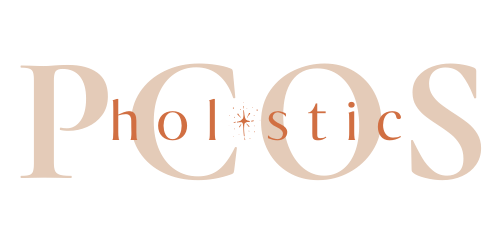PCOS Types 101: The Adrenal PCOS Type
Yeah, yeah. We all know “stress is bad for us.” But as it turns out, it plays a major role in PCOS symptoms. Sound crazy? Here's how it works:
PS - Not sure which one is your PCOS Type? Take our 2-minute quiz before you dive in:
As the Adrenal Type, you probably:
Feel like you could sleep forever and have a hard time getting up in the morning
Feel exhausted all day long (helloooo afternoon nap)
Crave salty foods
Have experienced periods of extreme stress (think: 60+ hour work weeks) or trauma (job loss, grief, divorce, moving, etc) in the last few years
Need coffee to get going or make it through the afternoon
Work long hours, handle lots of stress at work, or have recently experienced a major trauma in the last few years
Feel "tired but wired" at night, even if you want to go to bed
Okay so how does stress actually cause PCOS symptoms?
Long story short? When we experience prolonged, chronic stress, our bodies send out a lot of stress hormones like cortisol and adrenaline. After a while, however, our reserves start to get depleted. This also tells our adrenal glands (our stress response glands) to produce a "male" hormone called DHEA-S, which contributes to PCOS symptoms like irregular periods, acne, unwanted hair growth, and more. When we're experiencing high levels of stress hormones, we also tend to retain weight around our middle section, which can also worsen PCOS.
While your best bet is to join us in our groundbreaking, evidence-based program, the Holistic PCOS Method™ to learn how to manage the other big symptom drivers, here are 3 quick tips to start managing Inflammatory PCOS in the meantime:
Three Tips for Healing Your Adrenals + Managing Stress
1. Sleep is your new best friend.
The unsexy but honest answer? Your body needs rest. When we sleep even HALF of the recommended hours, our cortisol shoots up by as much as 40% the next day. Not to mention, our bodies do their best healing while we're conked out. So do yourself and do whatever you can to start getting as close to 9 hours a night as you possibly can.
2. Keep your blood sugar stable.
When we go too long without eating (especially those of us with a hormonal imbalance), our bodies send out stress hormones to tap into sugar stores. But those stress hormones through our sex hormones out of whack, and also further deplete our adrenals. Aim for meals containing protein, good fats, fiber, and complex carbs, will help your body maintain your blood sugar in a healthy way, without stressing out your hormones.
3. Take up a hobby, get moving, and/or practice some form of mind-body connection.
Mindfulness-based exercises such as meditation and yoga help to relieve stress and anxiety. Regular practice improves your ability to respond to stress in the future, and being in a meditative state not only switches you out of fight-or-flight mode, but it also allows certain thoughts or feelings to pass by without causing stress or anxiety, which means you spend less time focusing on negative thoughts.
Bonus Tip: Sign up to be the first to hear when the Holistic PCOS Method™ reopens!
Like most people with PCOS, you probably have other underlying root causes that are contributing to your symptoms. Not to mention, your root causes can change as you (and your diet & lifestyle) change! That's why it's important to take an individualized approach to treatment and learn how to combat each of these root causes.
The good news is, that’s exactly what we do inside the Holistic PCOS Method™, our leading 12-week program for people with PCOS. Sign up below to be the first to hear when we re-open enrollment!

